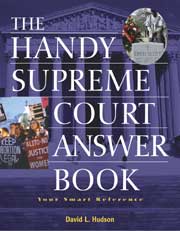President of the Day
What movement won the acclaim of two presidents?
- It occurred in the late 1800s and early 1900s.
- It was hailed as "the most American thing in America."
- It was a cultural, religious, and political education movement.
- It was described as "an integral part of the national defense."
 The Chautauqua movement
The Chautauqua movement
It was a cultural, religious, and political education movement that began in the 1870s and lasted into the 1920s. An estimated 45 million Americans participated in the chautauqua, making it a dominant force in American life during its day. Theodore Roosevelt (1858-1919) hailed it as "the most American thing in America," and, during World War I (1914-18), Woodrow Wilson (1856-1924) claimed that it was "an integral part of the national defense." Some scholars credit the chautauqua movement with sowing the seeds of liberal thought in America.
The movement began in 1874 at a Methodist Episcopal campsite on the shores of Lake Chautauqua, New York. There a young minister named John H. Vincent (1932-1920), of Camden, New Jersey, endeavored to train Sunday-school teachers in a summer camp atmosphere. The program grew in popularity and was expanded beyond Bible study and religious training to include lessons in literacy, history, and sociology. Chautauqua-style summer camps, commonly called Sunday-school assemblies, began popping up across the nation; all of them featured a general meeting hall or pavilion set in a campground. By 1900 there were 200 pavilions in 31 states. Attendees of all ages would attend the summer programs, which featured speakers on a wide variety of subjects, including the arts, travel, and politics. Performances also became part of the movement, with a variety of musicians and entertainers joining the lecturers.
Early in the twentieth century the chautauqua became increasingly secular and went on the road as an organized lecture and entertainment circuit. Speakers and performers traveled from town to town, where tents were set up for weeks at a time to house the summer programs. Many Americans saw their first movies in chautauqua tents. The movement died out in the mid-1920s, with the improvement of communications and transportations. Some consider the chautauqua the first form of American mass culture. The Chautauqua Institute in New York continues to host a summer education program in the spirit of the original.
From The Handy History Answer Book by Rebecca Ferguson, (c) 2005 Visible Ink Press(R) More than a thousand questions explore a cast of thousands, including Socrates, an early advocate of the question-and-answer format.
| < Previous Fact | Next Fact > |
Dig deeper with these related titles:
 |
The Handy Presidents Answer Book Second Edition A complete look at every Presidents' who, what, when, where, why, and, how . . . Offering an engaging overview of the U.S.... Read More » |
ISBN: 9781578593170 $54.95 |
 |
The Handy History Answer Book, 2nd Edition All things must pass. In an understatement of historic proportions, quite a few things have passed since the end of the last millennium, when The... Read More » |
ISBN: 9781578591701 $21.95 |
 |
The Handy Supreme Court Answer Book What's arguably the Supreme Court's most controversial decision? Which Justices signed the Declaration of Independence? How much do you really know... Read More » |
ISBN: 9781578591961 $39.95 |
 |
The Handy Politics Answer Book In these politically charged times, interest in the political process is peaking. From the national election debacle in Florida to 9/11 to... Read More » |
ISBN: 9781578591398 $21.95 |





